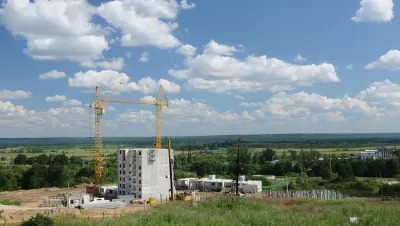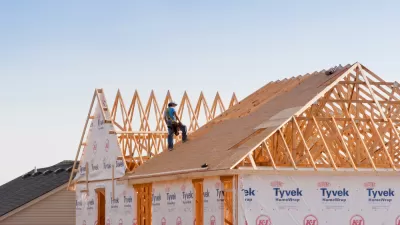Bill Witte, president of Related California, one of the most active developers of residential and commercial properties on the West Coast, talks about real estate, affordable housing, and a squeezed middle class with The Planning Report.

Bill Witte, president of Related California, oversees all multi-family and mixed-use development in California for one of the nation’s largest real estate firms. Drawing on his four decades of experience and on his time in San Francisco’s public sector, where from 1988 to 1989 he was Deputy Mayor for Housing and Neighborhoods and acting Director of the Housing Authority and from 1983 to 1988 was Director of the Mayor’s Office of Housing and Economic Development, Witte sat down with The Planning Report to discuss Los Angeles County’s losing struggle to meet demand for affordable housing. He puts LA in the context of the State of California as a whole, commenting on the larger social and economic issues behind the disconnect between low-income residents’ needs and the housing options available to them in today’s marketplace. Housing costs not the only story. Schools, transportation, and livability make finding the appropriate housing options difficult for people in a cities, particularly for families.
Ultimately, there's only so much a city can do to directly subsidize housing against a market. Witte notes that the problem is developers not meeting the demand for housing due to a variety of reasons, saying, "Los Angeles County has a very high percentage of low and very-low-income households. You have both a supply and a demand problem. You have a relatively expensive housing market and an often lengthy and expensive approval process for new development."
FULL STORY: Bill Witte on Housing Affordability: A Supply and Demand Problem

Alabama: Trump Terminates Settlements for Black Communities Harmed By Raw Sewage
Trump deemed the landmark civil rights agreement “illegal DEI and environmental justice policy.”

Study: Maui’s Plan to Convert Vacation Rentals to Long-Term Housing Could Cause Nearly $1 Billion Economic Loss
The plan would reduce visitor accommodation by 25% resulting in 1,900 jobs lost.

Planetizen Federal Action Tracker
A weekly monitor of how Trump’s orders and actions are impacting planners and planning in America.

Wind Energy on the Rise Despite Federal Policy Reversal
The Trump administration is revoking federal support for renewable energy, but demand for new projects continues unabated.

Passengers Flock to Caltrain After Electrification
The new electric trains are running faster and more reliably, leading to strong ridership growth on the Bay Area rail system.

Texas Churches Rally Behind ‘Yes in God’s Back Yard’ Legislation
Religious leaders want the state to reduce zoning regulations to streamline leasing church-owned land to housing developers.
Urban Design for Planners 1: Software Tools
This six-course series explores essential urban design concepts using open source software and equips planners with the tools they need to participate fully in the urban design process.
Planning for Universal Design
Learn the tools for implementing Universal Design in planning regulations.
Caltrans
Smith Gee Studio
Institute for Housing and Urban Development Studies (IHS)
City of Grandview
Harvard GSD Executive Education
Toledo-Lucas County Plan Commissions
Salt Lake City
NYU Wagner Graduate School of Public Service





























